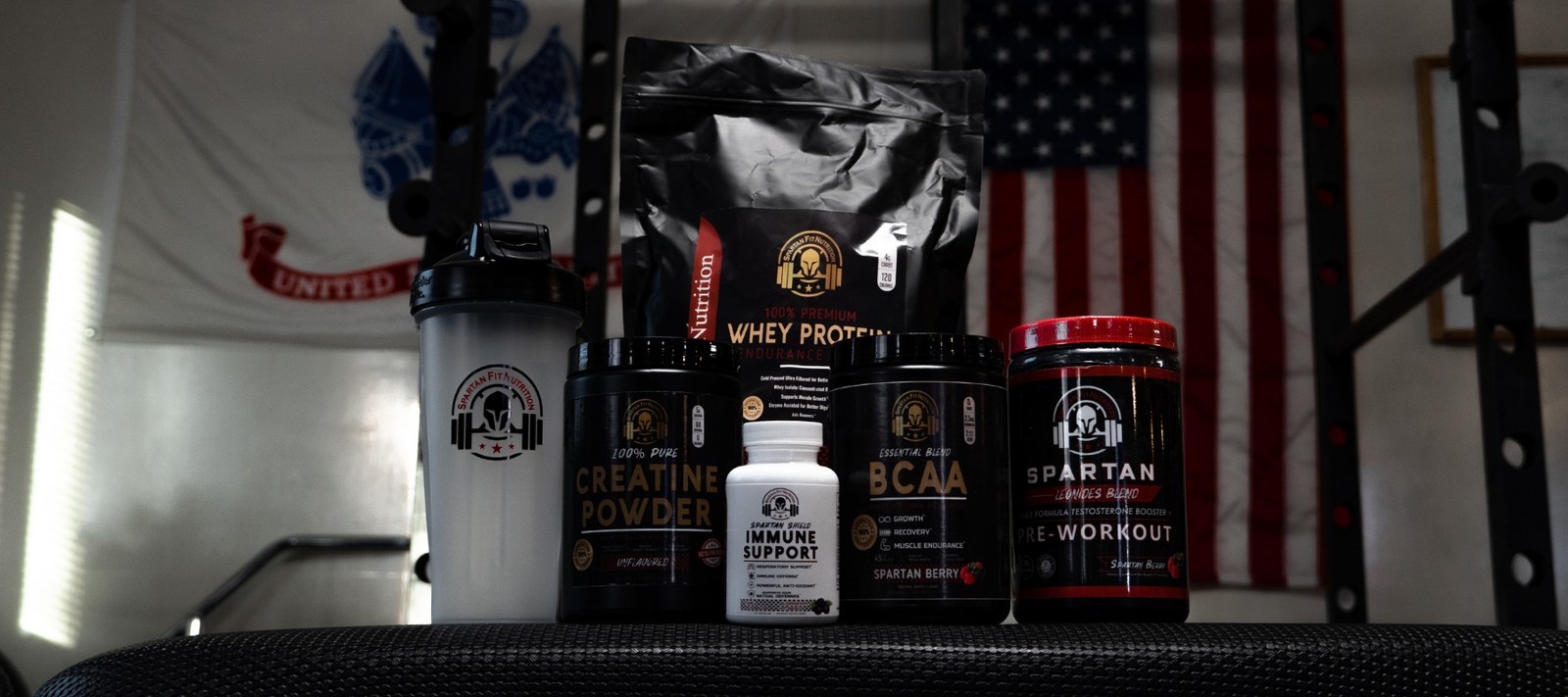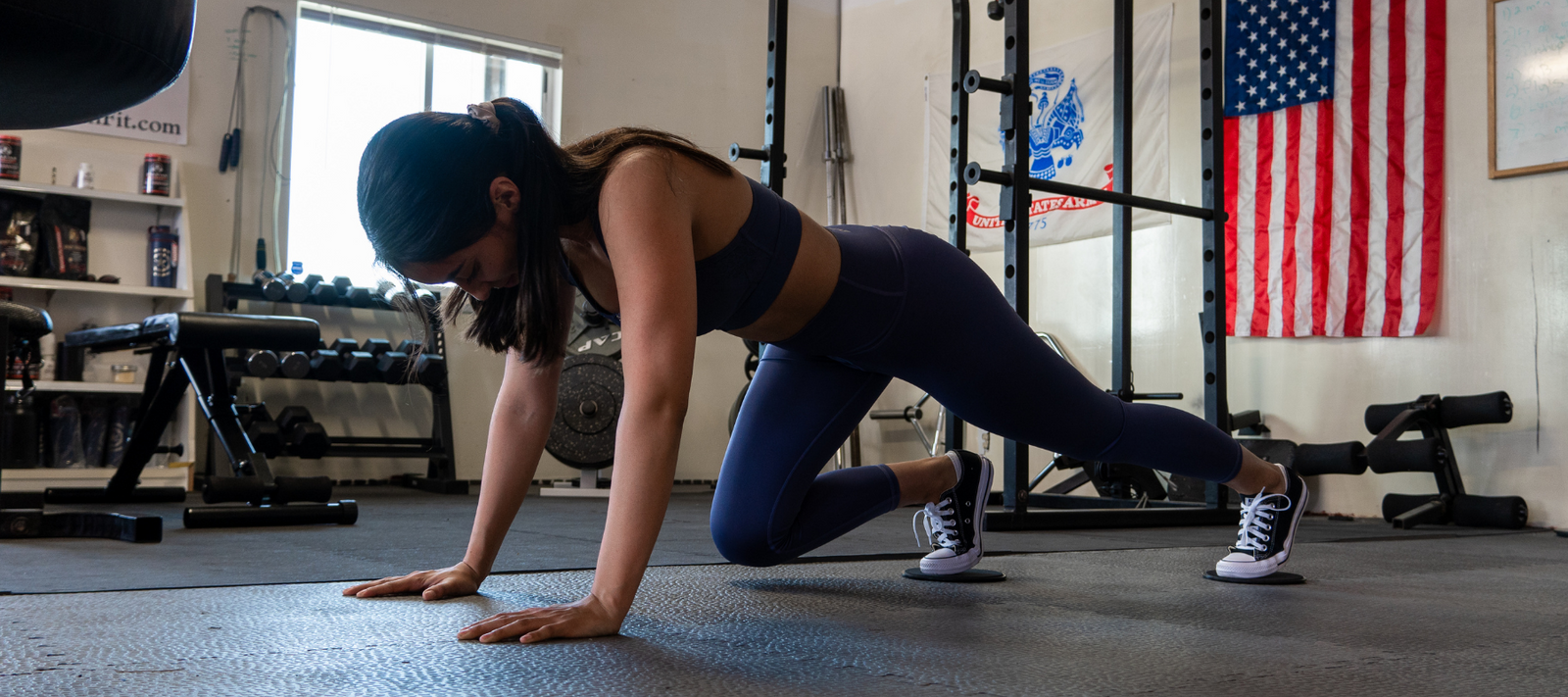Knowing the Right Time to Take Supplements
How Timing Your Intake Can Have a Big Impact

Nutritional supplements are an effective way to get your body the essential vitamins and minerals it needs. However, knowing when to take these supplements can be just as important as taking them in the first place. In this article, we’ll explore why timing your intake of supplements can have a huge impact on their efficacy and how you can optimize your dosing schedule for maximum benefit.
TABLE OF CONTENTS
WHY TIMING MATTERS
WHAT TO CONSIDER WHEN TAKING SUPPLEMENTS
UNDERSTANDING YOUR BODY'S BIOLOGICAL RHYTHM
BEST TIME TO TAKE PRE-WORKOUT SUPPLEMENT
BEST TIME TO TAKE CREATINE SUPPLEMENT
BEST TIME TO TAKE BCAA SUPPLEMENT
BEST TIME TO TAKE PROTEIN SUPPLEMENT
#1 WHY TIMING MATTERS
When you take a supplement matters because certain nutrients work best when taken at specific times of day. For instance, some supplements such as vitamin C are best absorbed on an empty stomach while others like magnesium should be taken with meals. Additionally, certain herbs like Ashwagandha need to be cycled on and off so that they don't become less effective over time.
Additionally, timing is also important because certain nutrients work better together than others. For example, taking fish oil and vitamin D together will help your body absorb both more effectively as they’re both fat-soluble vitamins. And by taking probiotics in the evening before bedtime, you increase their chances of surviving through the night for optimal digestive health in the morning.
#2 WHAT TO CONSIDER WHEN TAKING SUPPLEMENTS
Remember, when it comes to taking nutritional supplements, the timing of your intake can have a huge impact on their efficacy. This is because certain vitamins and minerals are best absorbed at specific times of day, while others need to be cycled on and off so they don't become less effective over time. Additionally, some nutrients work better together than when taken separately.
#3 UNDERSTANDING YOUR BODY'S BIOLOGICAL RHYTHM
Your body has its own biological clock or daily rhythm – known as the Circadian rhythm – that affects how you feel physically, emotionally and mentally throughout the day. Knowing this underlying rhythm is key for making sure that you take supplements at the optimal time so that your body can make full use of them.
For instance, understanding the circadian rhythm means knowing when hormones like cortisol peak in the morning and when energy levels are highest in the afternoon. This will help you decide if it’s better to take certain supplements like vitamin C on an empty stomach first thing in the morning or with meals later on during the day for maximum benefit. It also helps to determine whether it’s better to take stress-reducing herbs like ashwagandha in the evening or before bedtime for optimal relaxation effects.
Before adding any dietary supplement into your routine, there are a few key factors to consider:
1. Check for interactions: Certain medications or other supplements may interact with each other in potentially dangerous ways so make sure to do research about any potential risks before combining them together.
2. Consult a doctor: Talk with your doctor before starting any new supplement regimen – especially if you have any health conditions or allergies – so that they can advise what's safe and appropriate for you specifically .
3. Choose high-quality products: Opt for supplements that are third-party certified and come from reputable sources; this ensures that what’s written on the label is accurate and meets industry standards of quality control.
#4 BEST TIME TO TAKE PRE-WORKOUT SUPPLEMENT
Pre-workout supplements aim to improve your workout performance by boosting your energy levels, sharpening your focus and alertness, and reducing fatigue. To achieve the maximum benefits of pre-workout supplements, it's crucial to take them at the appropriate time.
Our recommendation is to take your pre-workout supplement 30 minutes before your workout. This allows sufficient time for your body to absorb the nutrients and for the supplement to take effect. Keep in mind that taking the supplement too early or too late can lead to an ineffective workout.
While taking your pre-workout supplement, it's vital to adhere to the instructions on the label. Do not exceed the suggested dosage and ensure that you mix the supplement appropriately. It's also crucial to stay hydrated before, during, and after your workout.
Apart from taking your pre-workout supplement 30 minutes before your workout, there are other ways to enhance your workout performance. These include getting enough rest, consuming a balanced diet, and incorporating diverse exercises into your regimen.
In conclusion, consuming your pre-workout supplement 30 minutes before your workout can enhance your workout performance by providing an energy boost, increasing your focus and alertness, and reducing fatigue. Always remember to adhere to the instructions on the label and stay hydrated throughout your workout.
#5 BEST TIME TO TAKE CREATINE SUPPLEMENT
Creatine is a very popular sports supplement used by athletes to boost their performance. This naturally occurring compound can be found in small amounts in foods like meat and fish, and it's stored in your muscles to be used as a source of energy during exercise.
When it comes to taking creatine, there are two main approaches - before or after your workout. Some people prefer to take it before their workout because it can increase energy levels, improve strength, and enhance endurance. On the other hand, others believe that taking creatine after their workout is more beneficial as the muscles are more receptive to absorbing nutrients, which can aid recovery and muscle growth.
So, which approach is better? Well, there's no clear answer - it depends on your personal preference and goals. If you want an immediate energy boost and better performance during your workout, taking creatine before may be the way to go. However, if your main aim is to improve recovery and muscle growth, taking creatine after your workout may be more effective.
It's also important to remember that taking creatine consistently is more important than the timing. Make sure to follow the recommended dosage and stay hydrated regardless of when you take it.
In summary, the decision to take creatine before or after your workout depends on what works best for you. Both approaches have their benefits, and taking creatine consistently is key. So, follow the recommended dosage, stay hydrated, and enjoy the benefits of this popular supplement!
#6 BEST TIME TO TAKE BCAA SUPPLEMENT
When it comes to the timing of BCAA supplementation, opinions vary. Some people swear by taking them before a workout to boost energy and reduce muscle breakdown during exercise. Others prefer taking them after a workout to aid in muscle recovery and growth.
So, which one should you choose - taking BCAAs before or after your workout? It all depends on your fitness goals and personal preference. If you're looking to enhance your performance during your workout, taking BCAAs before may be your best bet. But if you want to support muscle recovery and growth, taking BCAAs after your workout might be more beneficial.
Another factor to consider is the type of workout you're doing. If you're doing high-intensity exercises like weightlifting or sprinting, taking BCAAs before might help you power through. But if you're doing more endurance-based exercises like long-distance running, taking BCAAs after your workout may be more effective in promoting muscle recovery.
The key takeaway is to take BCAAs consistently and follow the recommended dosage. You can also experiment with taking them before and after your workout to see what works best for you.
In conclusion, BCAAs are a great supplement for anyone looking to improve their athletic performance and support muscle growth. Whether you take them before or after your workout depends on your personal preference and fitness goals. Just make sure to take them consistently and follow the recommended dosage, and you'll be on your way to achieving your fitness goals!
#7 BEST TIME TO TAKE PROTEIN SUPPLEMENT
When you work out, your muscles experience tiny tears that need to be repaired in order to grow stronger. Protein supplements provide your body with the essential amino acids it needs to repair and rebuild muscle tissue. Taking a protein supplement after a workout can enhance muscle recovery and promote muscle growth.
But did you know that protein supplements can also be used as a meal replacement or snack throughout the day? Many people struggle to consume enough protein in their daily diets, especially if they follow a vegetarian or vegan diet. Protein supplements can be an easy and convenient way to meet your daily protein needs, and they can be a healthy alternative to sugary snacks or processed foods.
The general consensus among fitness experts is that the best time to take protein supplements is within 30 minutes to an hour after a workout. This is when your muscles are most receptive to absorbing nutrients and repairing themselves, and protein can help with that.
However, it's also important to make sure you're getting enough protein throughout the day. You can also take protein supplements between meals or even before bed to help with muscle recovery and growth.
Ultimately, the timing of protein supplementation depends on your individual goals and schedule. If you're not sure what's best for you, consult with a nutritionist or fitness professional.
CONCLUSION
Knowing when to take nutritional supplements can make all the difference in terms of how effective they will be once inside your body. By following simple steps such as researching potential interactions, talking to your doctor and selecting high-quality products, you can ensure that whatever supplement you choose will be optimally timed for maximum benefit!






